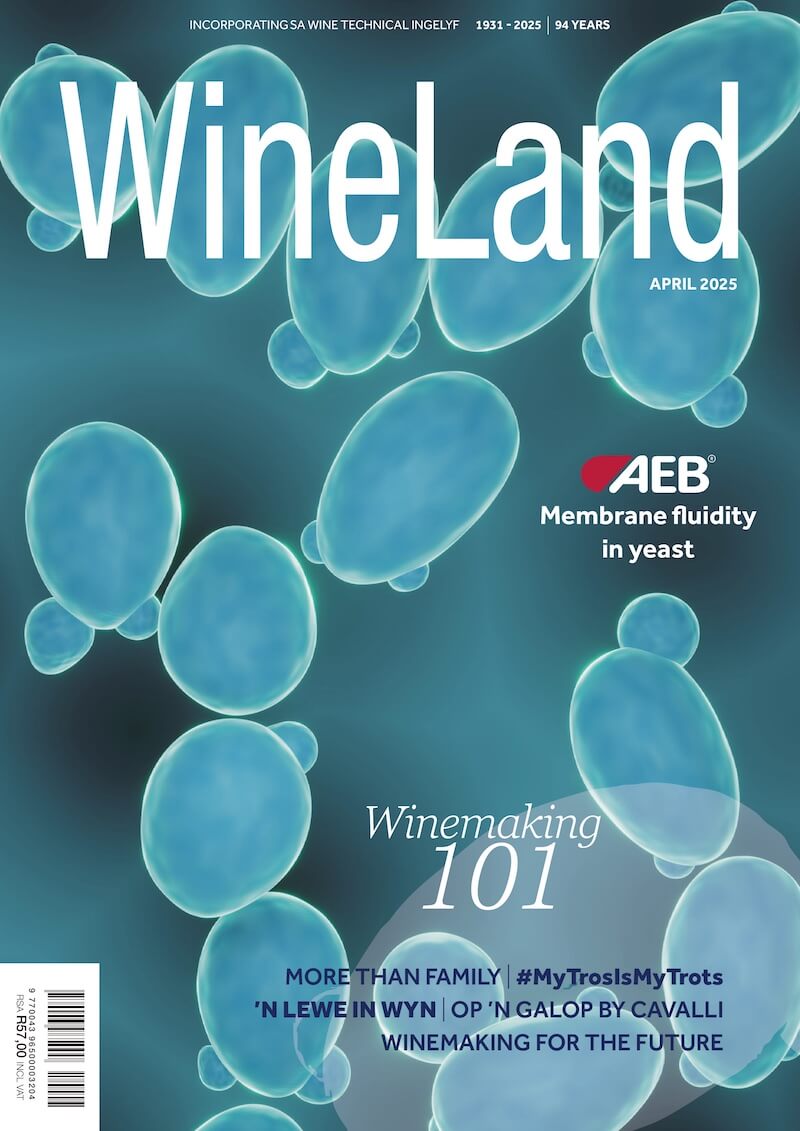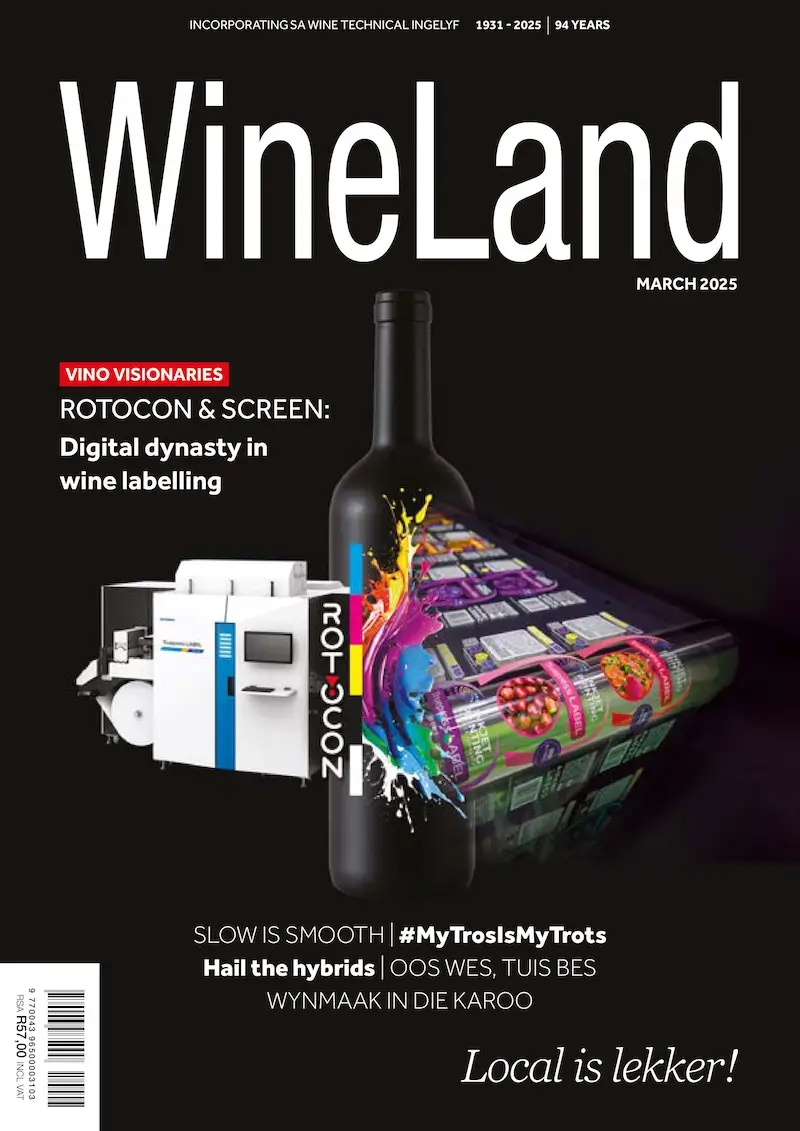American writer Mark Twain once said: “I have never let my schooling interfere with my education.”
For Cathy Marston and Dr Erna Blanquaert, these words couldn’t be more apt. Cathy is not only a celebrated wine writer, she’s also an associate of the Institute of Wines and Spirits in London and an educator at the International Wine Education Centre, the approved programme provider for the Wine & Spirit and Education Trust (WSET) in Africa. She’s currently studying for her Master of Wine (MW), the highest global qualification in wine.
Erna is an lecturer in viticulture at Stellenbosch University’s department of Viticulture and Oenology. An internationally respected academic, in 2015 she became the first black South African to be awarded a PhD in viticulture. She’s also a qualified South African wine judge. Erna says her journey to her doctorate was the result of boundless curiosity. “I always saw descriptions on wine labels such as peach, apricot, pineapple and wondered how that’s possible,” she says. She completed a BSc Agric in viticulture and oenology but still felt she didn’t know enough. “I enrolled for an MSc Agric in viticulture and worked as a teaching assistant. In 2009 I was appointed as a junior lecturer in the department of viticulture and was promoted to lecturer after completing my PhD.”
When selecting thesis topics for her research, Erna was very specific. “For my MSc I wanted to try to understand grapevine functioning under altered conditions. As for the PhD topic; it chose me. I had a choice of three topics and finally decided to focus on grape flavonoids.” Erna has been granted a research opportunity at Washington State University from June to January 2019 as a Fulbright Scholar. Erna will work on berry shrivel under the supervision of leading plant physiologist Professor Markus Keller.
Although her endeavours have been rewarding, her path to success has not been without obstacles. “It was a tough process and still is,” she says. “This is largely due to my gender because many people still question what a woman knows about viticulture.” Despite these challenges, she says her work in academia is exciting. “Every day is a surprise. This makes my work exciting. I can change the classroom setting at any given moment and go from lecturing undergraduate students one moment to being in the vineyard or laboratory the next.”
Cathy Marston’s first classroom was a wine bar. “My husband Kevin and I used to own The Nose Wine Bar, which at the time was the only wine bar in Cape Town, and ran frequent courses to help customers fill the quiet winter evenings,” she says. “When we sold the bar it was just something we carried on doing and eventually somebody suggested we should look at doing more formal courses. Because I’d done WSET courses in the UK, I knew how fantastic they were and I felt it was a good time to introduce them to South Africa.”
Cathy used to work as a direct marketing manager at Adnams Wine Merchants in Southwold in the United Kingdom. “They are big believers in education and even though I wasn’t a buyer or directly involved with customers, they still paid for me to do all the WSET courses to level 4,” she says.
“It’s from Adnams that I get my favourite saying: ‘What if we educate our staff and then they leave? Well, what if you don’t educate them and they stay?’ Adnams was amazing at giving everyone the opportunity to learn – even the guy who looked after the horses which pulled the drays around the town had done WSET courses which I think is fabulous!”
Having completed her WSET courses gave Cathy the leverage she needed to start her own business. It took careful planning and wading through piles of paperwork before she could apply to go on an educator’s course in London. Only then could she start running the courses.
Gaining teaching skills doesn’t mean the learning environment becomes stagnant, Cathy says. “The wine and viticulture landscape is changing all the time and it’s obviously important that I keep learning too. There are always new technological advances, new ideas, new challenges. You have to keep up with stuff and you never really stop learning.”
Erna also says her work is a continuous learning process. There are now more females entering the field of viticulture and oenology compared with when she was a student and there are also more candidates of colour. She advises students who want a career in the world of wine to have passion as this is a tough industry to be in and demands long hours. “Perseverance should be at the core and you must be willing to start at the bottom,” she says.
Her work entails travelling to conferences abroad where she has the opportunity to meet renowned scientists in various fields of expertise. A typical workday depends on the time of year, but every day starts with a good cup of coffee.
“During the harvest season my day starts at 5:00 so I can sample grapes and have them at the laboratory for analysis before 8:00,” she says. “Once the season is over, I get to the office at 7:00, prepare for lectures, do administration and conduct research which involves gathering data or processing it.”
When Cathy is conducting classes, the venue needs to be ready by 8:00. “If the course is in the Winelands, we have a really early start. We set up the room, computer and teaching materials and then welcome the students. The two-day courses are usually full. We’ve tried to stretch them out but it’s difficult for people to make all the sessions. I don’t think people can concentrate on learning in the evenings, especially not when it comes to tasting wine on an empty stomach! I normally teach to about 17:00, tidy the room and set it up for the next day, then head home for a glass of wine. Although we open amazing wines for our courses, I only ever taste small sips so that glass of wine when I get home always tastes lovely!
“I’m terrible at admin which is why I leave it to the last minute. All our books and exams come from overseas, so it’s quite a task making sure we’ve ordered everything on time and it will be here when we need it. Sometimes people don’t get that and can’t understand why they can’t just pitch up and sit an exam, but planning is one of the things you have to contend with if you’re part of a massive global education network.”
Cathy says her work is incredibly rewarding. “The best thing about my job is seeing how the qualifications people get through WSET can change their lives. I don’t want to seem overly dramatic but they really do – I’ve seen people get promotions, opportunities overseas and jobs, and this all leads to financial security for them and their families. Honestly, there’s nothing better I could do.”













